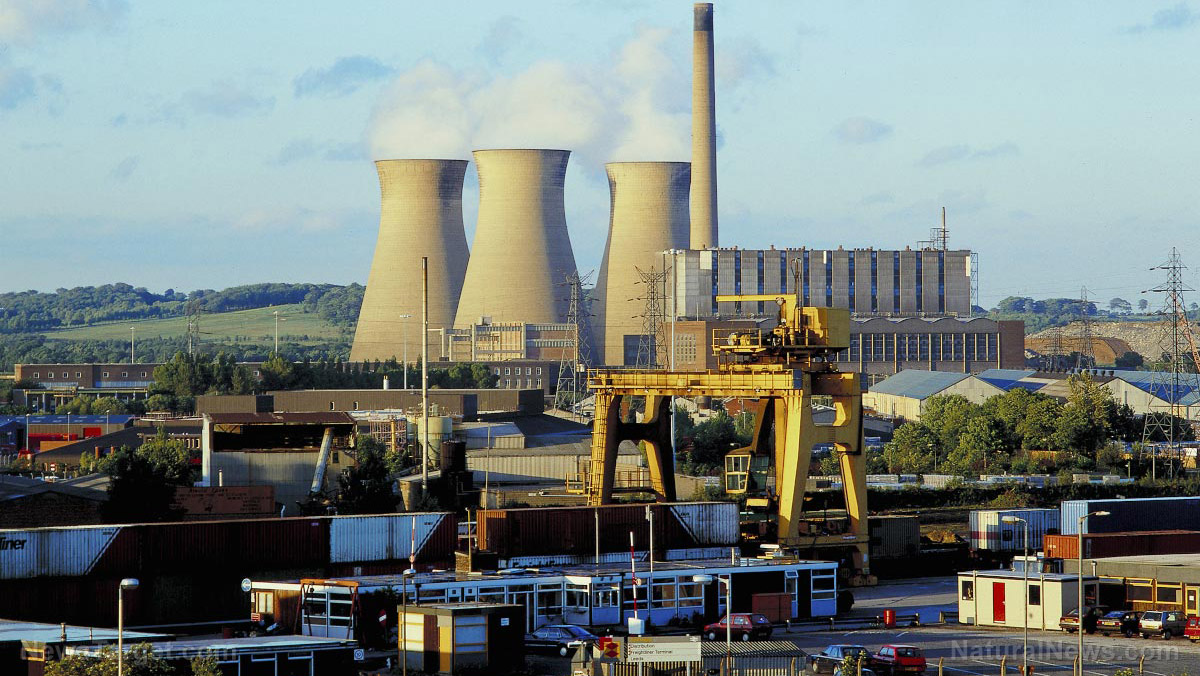Non-fossil fuel energy sources comprised 21% of US energy consumption in 2020
07/12/2021 / By Arsenio Toledo

In 2020, 21 percent of energy consumption in the United States came from non-fossil fuel sources, such as nuclear and renewables. This is the highest share non-fossil fuel sources have had since the early 1900s. Fossil fuels such as petroleum, natural gas and coal accounted for the remaining 79 percent of total U.S. energy consumption.
The U.S. significantly reduced its energy use in 2020 due to the country’s response to the Wuhan coronavirus (COVID-19) pandemic, as well as other economic factors. Primary energy consumption in 2020 totaled 93 quadrillion British thermal units (quads). This is seven quads less than in 2019 and the largest annual decrease on record.
Fossil fuel consumption for 2020 was at 73 quads. This is the lowest level it has been since 1991. The decrease in fossil fuel consumption is mostly due to the decline in the use of coal for electricity generation and petroleum for transportation. (Related: Crude oil production in Alaska at its lowest level in more than 40 years.)
Coal took a big hit in 2020. Coal consumption fell to 9.2 quads. This is the lowest level of coal use in 116 years. The use of coal has been falling since it hit a peak in 2005, with much of the decline due to reduced use in electricity.
For non-fossil fuel energy sources, consumption of renewable energy slightly increased to a record high of 11.6 quads. In 2019 it was 11.4 quads. Non-fossil fuel sources accounted for 20 percent of total energy consumption for that year.
Nuclear energy consumption sank to its lowest level since 2013, at 8.2 quads. This large decrease was offset by the increase in consumption of renewables, mostly for electricity generation. This includes growth in wind and solar energy consumption. There was also some decline in biofuel consumption for transportation.

Rapid shift to more renewable energy consumption makes electric grid vulnerable
Republican lawmakers pointed out that the Democrats’ push for more renewable energy is undermining America’s electric grid.
On Tuesday, June 29, during a House Energy and Commerce Committee hearing, Republican congressmen said the supposed push to combat climate change could have drastic consequences for American energy infrastructure.
The GOP lawmakers criticized the Climate Leadership and Environmental Action for our Nation’s (CLEAN) Future Act. This nearly 1,000-page long bill wants to radically transform America’s economy to bring it in line with the Paris Climate Accord.
Some of its most notable provisions include a requirement for the U.S. to produce 100 percent of its electricity from carbon-free sources by 2035. To accelerate the transition to solely producing non-fossil fuel energy for electric consumption, it requires all electricity suppliers to reach at least 80 percent non-fossil fuel energy by 2030. It also mandates that all-electric utility providers must offer some form of solar power to their customers.
“I am concerned [this legislation] is going to take us backward to a time before reliable electricity and modern conveniences,” said Rep. Cathy McMorris Rodgers of Washington. She is the Republican Party’s ranking member of the Energy and Commerce committee.
McMorris Rodgers and other Republicans in the hearing said the CLEAN Future Act’s goals are too ambitious. She and others have pointed out that the CLEAN Future Act is explicitly targeting the country’s coal and natural gas industries and the thousands of people who work there.
The Republicans in the hearing said Democratic efforts to phase out fossil fuels, which are stable means of electricity production, will only lead to disaster.
“Keeping the lights on is needed for a prosperous society and vital to our health and safety,” said McMorris Rodgers. “It’s key to our quality of life and lifting people out of poverty. Policymakers should not lose sight of that.”
While the use of renewables is on the rise, much of the American power grid is still heavily dependent on fossil fuels. The Republicans further pointed out that many forms of renewable energy like wind and solar are unable to produce sufficient electricity to provide for Americans.
This drawback has become much more evident recently in McMorris Rodgers’ home of the Pacific Northwest, which is currently battling an unprecedented heatwave. Temperatures across the region have climbed as high as 110 degrees Fahrenheit.
“We’re no strangers to extreme weather in the Pacific Northwest,” said McMorris Rodgers. “These weather events have solidified the importance of reliable power.”
The once-in-a-lifetime heatwave in the Pacific Northwest forced electric companies in the region to impose mandatory power outages. Much of the problem has been pinned on overzealous state and local renewable energy mandates that have crippled the ability of utility companies to keep up with the power demand.
If the CLEAN Future Act becomes law, or even just its 100 percent carbon-free electricity deadline, Republicans like McMorris Rodgers said the outages she and her constituents have been experiencing will become much more frequent.
Learn more about energy consumption in the U.S. and the disastrous consequences of transitioning to more renewables by reading the latest articles at NewEnergyReport.com.
Sources include:
Tagged Under:





















